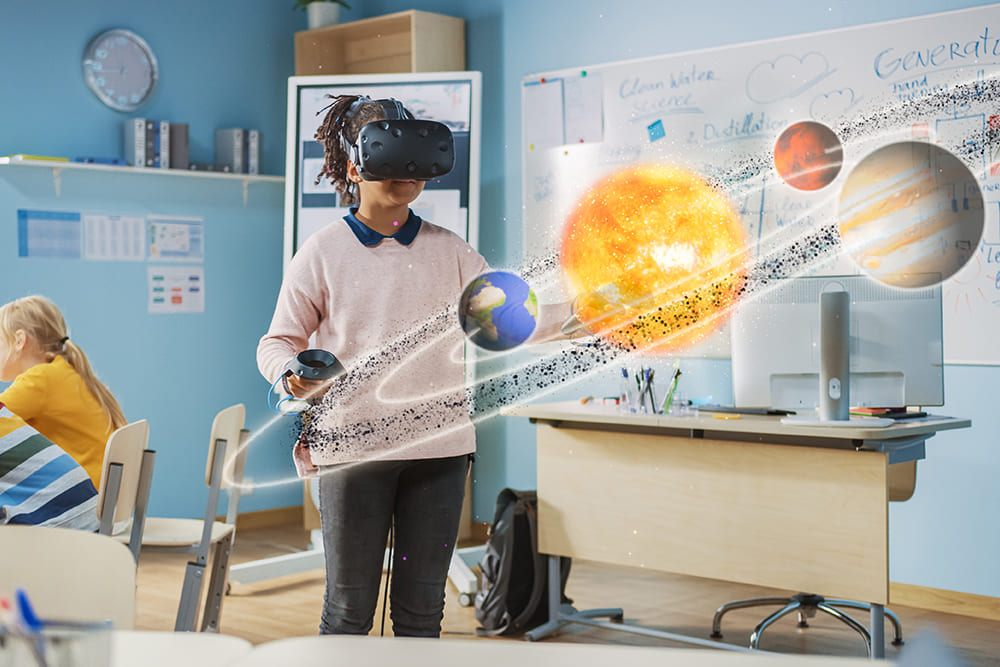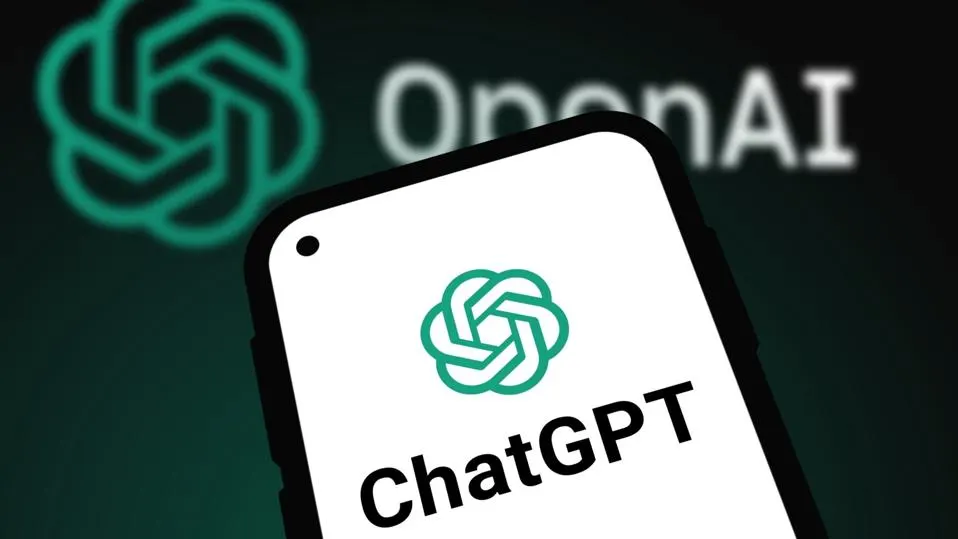10 Best Examples Of VR And AR In Education
23 July 2021
Extended reality (XR for short) – which encompasses virtual reality, augmented reality and mixed reality – uses technology to create more immersive digital experiences. In my latest book, Extended Reality In Practice, I look at a variety of sectors where XR is being used, and one of my favorite sectors is in the world of education.
In this post, I’m going to give you my ten favorite examples of how educators and researchers are using augmented and virtual reality to help students learn and engage in the classroom and beyond.

1. Bringing science concepts to life with augmented reality. We can now use augmented reality to create a tornado, then bring the funnel right into the classroom so students can experience these destructive storms close up. Or students can take an AR tour of a beehive to see its inner workings and explore how the bees work together to support the community.
2. The SkyView app allows students to explore the universe using AR overlays of the night sky. With SkyView, anyone can point their mobile device upward to identify stars, constellations, planets, and even satellites.
3. I don’t know about you, but when I was in school, we had to dissect frogs in biology class to learn about the inner organs of animals. That process was disgusting for us, and was pretty awful for the frogs, too! Now the Froggipedia app allows students to explore the internal organs of a frog via the app’s AR technology.
4. Microsoft HoloLens has developed a way for medical students and clinicians to learn about the human body using mixed reality. Students can flow through the bloodstream, isolate, enlarge, and even walk inside the components of the human body to not only understand anatomy but learn how to treat different medical conditions.
5. Produced for the BBC by Immersive VR Education, 1943 Berlin Blitz in 360° uses real-life footage from a nighttime raid of Nazi Germany to help students understand what it was like to live through a significant historical event.
6. Most teachers can’t take their students to Base Camp at Mount Everest or take them to visit the Louvre, but they can do both of these things with a series of highly immersive school trips with Google Expeditions.
7. If you’ve ever wished you could practice a speech in front of a virtual audience before walking out on a real stage, you can now put on your virtual reality goggles and do just that. VirtualSpeech helps you improve your public speaking skills with immersive, realistic virtual reality simulations.
8. Steam’s VR Museum of Fine Art allows users to view world-class paintings and sculptures up close – including the Mona Lisa – without fighting with crowds or protective glass.
9. Training companies can also use extended reality in professional situations. Police departments are now using VR to train officers to deal with riots or arrest people in specific situations in an effort to make streets safer for citizens and officers alike.
10. Learning languages can feel very theoretical when you’re reading books, but virtual reality educational software companies like Mondly can provide an immersive language-learning experience without having to travel to a foreign country. In Mondly’s VR worlds, you can have real conversations with real people, making your language learning more powerful and more likely to stick.
Hopefully, these great examples get you excited about the possibilities of using augmented and virtual reality in education.
Related Articles
11 Most Reliable AI Content Detectors: Your Guide To Spotting Synthetic Media
Since the launch of ChatGPT just two years ago, the volume of synthetic – or fake – content online has increased exponentially.[...]
The AI-Powered Citizen Revolution: How Every Employee Is Becoming A Technology Creator
Something remarkable is happening in organizations around the world.[...]
6 Mistakes IT Teams Are Guaranteed To Make In 2025
The next wave of artificial intelligence isn't just knocking at enterprise doors - it's exposing fundamental flaws in how organizations approach technology transformation.[...]
2025’s Tech Forecast: The Consumer Innovations That Will Matter Most
Consumer technology covers all of the tech we buy to make our lives more convenient, productive or fun.[...]
7 Healthcare Trends That Will Transform Medicine In 2025
Healthcare has evolved dramatically in recent years, with technology driving countless new opportunities, just as demographic and societal factors have created new challenges.[...]
The Simple ChatGPT Trick That Will Transform Your Business AI Interactions
I believe ChatGPT and other generative AI tools can help pretty much any business.[...]
Sign up to Stay in Touch!
Bernard Marr is a world-renowned futurist, influencer and thought leader in the fields of business and technology, with a passion for using technology for the good of humanity.
He is a best-selling author of over 20 books, writes a regular column for Forbes and advises and coaches many of the world’s best-known organisations.
He has a combined following of 4 million people across his social media channels and newsletters and was ranked by LinkedIn as one of the top 5 business influencers in the world.
Bernard’s latest book is ‘Generative AI in Practice’.










Social Media